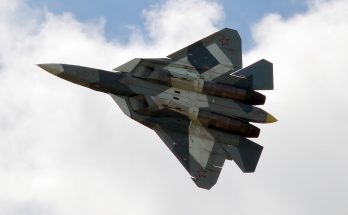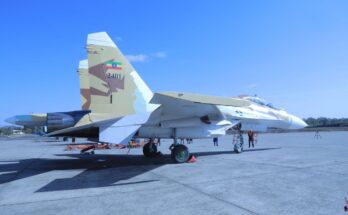
After what can politely be called a difficult year, Denel is undertaking an ambitious turnaround plan, which will likely decide the fate of the company. The company arrived at this inflection point following years of mismanagement and corruption, which has led to numerous turnovers of its key leadership.
Denel posted a loss of ZAR1.76 billion in FY2018 compared to net income of ZAR282 million in FY2017. The loss was attributed to mismanagement and exacerbated by poor contract performance, which in turn fueled liquidity issues. Sales for the year also plummeted, down 38 percent to ZAR5.0 billion, compared to 2017 sales of ZAR8.1 billion.
Problems began to arise with Denel’s earlier expansion efforts. A number of these moves, such as the acquisition of BAE Land Systems South Africa and the formation of Denel Asia, have drawn fire from the South African government.
In the case of the BAE acquisition, questions have surfaced over the transaction. At the core of the allegations is the fact that the BAE LSSA purchase was not implemented in accordance with the funding model that was approved, and BAE LSSA’s liquidity was misrepresented, according to reports.
Then, in January 2016, Denel announced it was creating Denel Asia, a joint venture company in Hong Kong, in partnership with VR Laser. This deal was highly controversial in South Africa. By August 2017, the deal had been canceled. By year-end 2017, Denel was having severe liquidity problems, which resulted in employee and supplier payment delays. Finally, adding to the company’s woes were corruption allegations and union strife.
These issues were a marked departure for the state-owned firm, which until that point had achieved good performance and triple-A financial ratings from Fitch, which has since downgraded the firm. With the damage done, South African Public Enterprise Minister Pravin Gordhan sacked the company’s entire board of directors in April 2018 as part of a cleanup effort. The new board has been tasked with restoring good governance practices and rebuilding the company’s tarnished reputation.
In April 2019, the company announced plans to restructure and divest some operations as part of its turnaround effort. A new CEO, Daniel Du Toit, was appointed to lead the effort. Du Toit brings a solid background in South African and European defense with a resume that includes SAAB Medav Technologies in Germany as well as an earlier stint at SAAB Grintek Defence in South Africa.
He has his work cut out for him as the company needs to be recapitalized and a steady stream of MoD orders secured. The recapitalization effort aims to get ZAR2.8 billion from the government. The company is deemed a vital state organ for defense production and while the government may balk initially, as it did with an earlier bailout, ultimately it will follow through.
Defense orders will likely be more difficult as the South African Defence Force (SADF) has seen cuts to its acquisition budget of late. The company lost another revenue stream when it exited the A400M program. With this program off the books, Denel may end up shuttering its aerostructures business outright.
Other proposed changes include selling stakes or divesting outright operations such as Spacteq, Dynamics, Mechem, Gear Ratio, and Hendsoldt Optronics. Other non-core operations are likely to be identified and put on the block over the course of the year. Further, the company will likely seek strategic equity partnerships and joint ventures to secure market access and develop new technology.
As it weathers these changes, the Denel that will emerge in the year ahead will be a dramatically different entity. If it goes as hoped, the new Denel will operate under a leaner, more efficient structure that will improve its domestic standing and restore the public trust.
A military history enthusiast, Richard began at Forecast International as editor of the World Weapons Weekly newsletter. As the Internet grew in importance as a research tool, he helped design the company's Forecast Intelligence Center and currently coordinates the EMarket Alert newsletters for clients. Richard also manages social media efforts, including two new blogs: Defense & Security Monitor, covering defense systems and international issues, and Flight Plan, which focuses on commercial aviation and space systems. For over 30 years, Richard has authored the Defense & Aerospace Companies, Volume I (North America) and Volume II (International) services. The two books provide detailed data on major aerospace and defense contractors. He also edits the International Contractors service, a database that tracks all the contractors involved in the programs covered in the FI library. More recently he was appointed Manager, Information Services Group (ISG), a new unit that encompasses developing outbound content for both Forecast International and Military Periscope.




